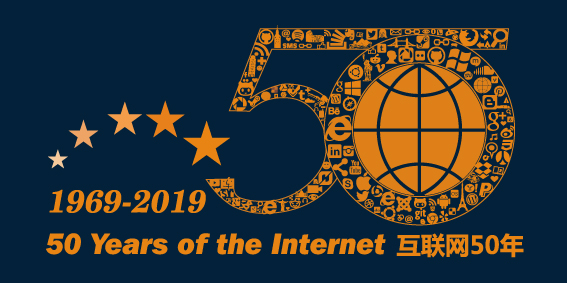 The OHI Project – 50 Years of the Internet
The OHI Project – 50 Years of the Internet

Introduction
To celebrate the first 50 years of the Internet, CyberLabs has launched the Oral History of the Internet (OHI), recording and preserving the personal narratives of global Internet Pioneers’ extraordinary contribution to the internet development. By 2019, OHI should have interviewed 500 Internet Pioneers around the world. A 50-episode TV series, documentaries and books will be produced based on the video interviews. The OHI, which started first in China in 2007, has interviewed nearly 200 Internet Pioneers who mostly come from Asia, Europe and the United States. The OHI will also go to interview those from Africa, Mid-East and Oceania.
The mission of OHI: Recording the first 50 years of the internet so to embrace its next 50 years.
The OHI will thus build a virtual monument that is committed to documenting personal narratives from the Internet Pioneers who have made extraordinary contributions to the development of the internet around the world. OHI was launched by CyberLabs, a think tank devoted to recording and preserving the internet history, which has started the project first in China since 2007. As the internet is facilitating unprecedented, multi-faceted interactions around the world, OHI goes global by video recording oral testimonies from the worldwide Internet Pioneers about their extraordinary contributions to the development of the internet in their own countries or fields.
The Process
The Internet Pioneers were selected by the international Academic Board of CyberLabs by consulting its Board of Consultants based on their personal contributions to the internet development at different stages, and in particular, the social impact of their contributions. Each Internet Pioneer’s oral testimony starts with a video recording of a first-person account with an interviewer from CyberLabs, who share the conscious intention of creating permanent oral history in the purpose of better understanding the internet’s past and future. All the interviews will be posted online so that they are available to the public around the world through the internet. The oral history made out of the due process is then preserved and made available in various forms to internet researchers and members of the public.
The Significance
OHI records and preserves diverse historical perspectives of the internet history from global Internet Pioneers in the hope of advocating the collaborative effort of building up the internet. The oral history produced could be used as a powerful tool for bridging divides, improving engagement, and facilitating historical understanding in terms of internet governance, policy making, and cybersecurity. OHI thus welcomes individuals and institutions who share the values of creating and preserving the oral history of the internet to join us to in promoting excellence in the collection, preservation, dissemination and uses of the oral testimonies for current and future users. In this sense, OHI should help foster better communication among global communities who are increasingly interact on the internet.
Guidelines for OHI Interviews
The OHI interviews seek an in-depth account of Internet Pioneers’ personal contribution and reflections on the internet development at different stages. An OHI interview is different from most interviews conducted by news media organizations as the former offers sufficient time to our invited Internet Pioneers to tell their stories the fullness they desire. The content of oral history interviews is grounded in reflections on the past as opposed to commentary on purely contemporary events.
In the OHI interviews, Internet Pioneers are reminded that they must voluntarily give their consent to be interviewed and understand that they can withdraw from the interview or refuse to answer any question at any time. Before the interview, they may choose to give the consent by signing a consent form or recording an oral statement of consent. All interviews are conducted in accord with the stated aims and within the parameters of the consent.
Interviewees hold the copyright to their interviews until and unless they transfer those rights to OHI. This is done by the interviewee signing a release form or recording an oral statement to the same effect. The invited Internet Pioneers also have the right to put restrictions on the use of their interviews. All use and dissemination of the interview content must follow any restrictions they place upon it.
OHI respects its invited Internet Pioneers as well as the integrity of the research. Interviewers are obliged to ask historically significant questions, reflecting careful preparation for the interview and understanding of the issues to be addressed. Interviewers respect the Internet Pioneers’ equal authority in the interviews and honor their right to respond to questions in their own style and language. During the OHI interviews, both interviewers and interviewees (Internet Pioneers) should strive for intellectual honesty and the best application of the skills of their discipline, while avoiding stereotypes, misrepresentations, or manipulations of the narrators’ words.
In keeping with the goal of long term preservation and access, OHI should use the best recording equipment available within the limits of their financial resources to reproduce the voice accurately and, if appropriate, other sounds as well as visual images. The OHI interviewers must avoid making any promises that cannot be met, such as guarantees of control over interpretation and presentation of the interviews beyond the scope of restrictions stated in informed consent forms, or suggestions of material benefit outside the control of the interviewer.
Contacts:
Dr. Fang Xingdong
President and CEO, CyberLabs
Email: 98837@qq.com
Dr. Bu Zhong
Senior Research Fellow, CyberLabs
Email: zhongbu@gmail.com
Ms. Fan Yuanyuan
Director of International Cooperation, CyberLabs
Email: fanyuanyuan@chinalabs.com


 The OHI Project – 50 Years of the Internet
The OHI Project – 50 Years of the Internet